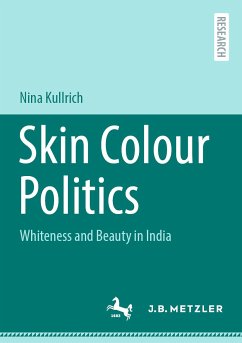The global practice of skin bleaching is predominantly understood as an internalized legacy of colonialism and an embodiment of Western ideals of beauty. This book offers a new perspective on fair skin preference in India: it challenges the assumption that desires for light skin are always a desire of whiteness. Rather than talking back to the colonial centre, skin colour politics reorganise and reinforce social distinctions in Indian societies, which are neither exclusively local nor global. Based on primary research conducted in Delhi, this multi-dimensional study shows how skin colour intersects with and reproduces other categories of social distinction - primarily gender, class, caste, race, region and religion. It historically embeds fairness as an Indian, precolonial yet transnational ideal of beauty. The bleached body emerges as an active and thus, potentially resistant part of negotiating social status within multiple power relations and complex beauty regimes. By mapping a whole geography of skin colours in India, this book shows how fair skin as a locally embedded beauty norm and whiteness as a global cultural imperative interrelate.
About the Author
Nina Kullrich graduated in cultural and literary studies and currently works as project coordinator for an NGO with a focus on global justice and intersectional feminisms.
Dieser Download kann aus rechtlichen Gründen nur mit Rechnungsadresse in A, B, BG, CY, CZ, D, DK, EW, E, FIN, F, GR, HR, H, IRL, I, LT, L, LR, M, NL, PL, P, R, S, SLO, SK ausgeliefert werden.









